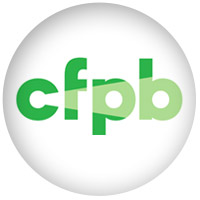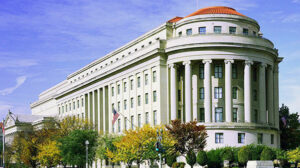
The Consumer Financial Protection Bureau last week ordered Citibank and its subsidiaries to pay about US$700 million in relief to eligible consumers and a $35 million civil penalty for, in essence, scamming consumers into paying for unwanted credit card add-on products and services.
This is the 10th action the bureau has undertaken against banks for deceiving consumers in its four years of existence.
The CFPB’s consent order names Citibank, Department Stores National Bank, and Citicorp Credit Services as the defendants.
The bank or its service providers misrepresented costs and fees, misrepresented the benefits of some services, used illegal practices to enroll consumers for those services, misrepresented or omitted information about eligibility for coverage, and engaged in unfair billing and deceptive collection practices, the CFPB found.
“Citibank is the latest big credit card company to pay the price for deceptive sales of extremely profitable, nearly useless credit card add-on products,” said Edmund Mierzwinski, consumer program director at U.S. PIRG (Public Interest Research Group).
“CFPB has now directly returned over $2 billion to consumers from sketchy add-on practices by all the biggest banks,” Mierzwinski told CRM Buyer.
More on Citibank’s Misdeeds
About 7 million consumer accounts were affected by Citibank’s deceptive marketing, billing and administration of debt protection and credit monitoring add-on products, the CFPB said.
In addition, a Citibank subsidiary deceptively charged expedited payment fees to nearly 1.8 million consumer accounts during collection calls.
“These deceptive credit card practices are widespread and pretty deeply rooted in the industry,” said Jim Lardner, communications director at Americans for Financial Reform.
AFR supports the 21st Century Glass-Steagall Act, which is sponsored by United States Sens. Elizabeth Warren, D-Mass., and John McCain, R-Ariz., among others, Lardner said.
The Bad Behavior of Banks
The CFPB last year ordered Bank of America and its subsidiaries to pay $727 million for illegal credit card practices and fined them $20 million in civil penalties, in a case strikingly similar to that against Citibank.
The bureau last week filed a complaint against Student Financial Aid Services for illegal sales and billing practices, and it ordered Discover Bank to pay $16 million in consumer refunds and a $2.5 million penalty for illegal student loan servicing.
CFPB in April fined Regions Financial Corp. $7.5 billion and ordered it to refund $49 million to hundreds of thousands of customers illegally charged overdraft fees.
“I doubt these practices will go away with just financial penalties — they are simply too lucrative,” said Rob Enderle, principal at the Enderle Group.
Decision makers should be held accountable, he told CRM Buyer, as “right now the system favors unethical executives.”
GOP Attacks on the CFPB
Since its inception, Republican lawmakers have been trying to take down the CFPB. U.S. Sen. Ted Cruz and Rep. John Ratcliffe, both from Texas, last week introduced legislation to eliminate it.
Since CFPB’s beginning, big banks have grown larger, and the number of smaller banks and options for consumers have decreased, Cruz said.
“The CFPB’s the only agency that has actually stood up for consumers in the financial marketplace, and that’s why they’re trying to kill it off,” AFR’s Lardner said, adding that the growth in large banks’ size “is partly a function of the [2008] bailout and of the financial crisis.”
Cruz’s statement “is a false narrative,” U.S. PIRG’s Mierzwinski maintained.
The number of small banks is decreasing for historical reasons that are “completely unrelated to the CFPB,” he argued. “It’s disappointing that Senator Cruz has not studied the matter.”
In fact, the CFPB has helped community banks, and their profits were up nearly 28 percent quarter over quarter in Q4 2014, while large banks saw profits slide, noted Adam Levitin, a professor of law at Georgetown University, in testimony before the U.S. House of Representatives earlier this year.
“The cost of regulation is hurting banks,” said Enderle, “but their bad behavior is making this regulation necessary.”






















































